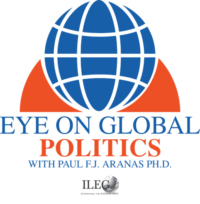Unrestrained power is always potentially very dangerous. Power facilitates greed and together they multiply exponentially; and the results of greed can produce more power, illegitimate as it may be.
In this series of articles, I will discuss the nature of power and the concept of legitimacy, explaining the distinction between the two areas in relation to the international system.
Part 1: The Nature of Power
Power asymmetries among nations are an important characteristic and a central dynamic of contemporary international relations. Throughout history, power struggles have been a constant part of politics and international affairs. However, in modern times, power has acquired a need for legitimacy, and with legitimacy, power becomes authority.
Scholars disagree concerning the nature of power and how it operates. Gilpin (1981, p. 13) writes that the concept of power is “one of the most troublesome in the field of international relations.” Further, Dahl (1957) argues that terms such as power and influence all involve the same basic principle, which is A causing B to do something that B would not have done if not acted upon by A. Commenting on Dahl’s definition, Baldwin (2002, p. 177) writes, “Although alternative definitions of power abound, none rivals this one in widespread acceptability.” The terms power, influence, and control have been and can be used interchangeably, but it is useful to distinguish differences among those terms. Power, influence, and control all involve actor A causing actor B to do something it would not have done otherwise. The maintenance of power in international relations and politics does not merely refer to the maintenance of a position as the head of state or the commander of the armed forces, but to the maintenance of influence, control, or power over Actor B.
It is often stated that power corrupts. Burckhardt (1979, p.139) argues “power is of its nature evil, whoever wields it.” Weber (1994, p.75) concurs and writes that Burckhardt’s argument “is a wholly and consistent one, when considered from the standpoint of those cultural values which have been entrusted to a people.” Weber’s notion of power has been the most frequently cited definition in the social sciences: “Power [Macht] is the probability that one actor within a social relationship will be in a position to carry out his own will despite resistance, regardless of the basis on which this probability rests” (Uphoff 1989, p. 299).
Human beings tend to become concerned or even antagonistic when faced with someone or something that has obtained a significant proportionate quantity of power. In my next post, I will address this reaction and cite some historical abuses of state power.
Sources
Baldwin, DA 2002, ‘Power and international relations’, in W Carlsnaes, T Risse & BA Simmons (eds.), Handbook of International Relations, Sage, London.
Burckhardt, J 1979, ‘Reflections on history’, Liberty Classics, Indianapolis.
Dahl, RA 1957, ‘The concept of power’, Behavioral Scence, vol. 2, no. 3, pp. 201-215.
Gilpin, R 1981, ‘War and change in world politics’, Cambridge University Press, Cambridge.
Uphoff, N 1989, ‘Authority and legitimacy: taking Max Weber at his word by using resource-exchange analysis’, Polity, vol. 22, no. 2. pp. 295-322.
Weber, M 1994, ‘Between two laws’, in P. Lassman, P & R. Speir, R (eds) 1994, Weber political writings, Cambridge University Press, Cambridge.
